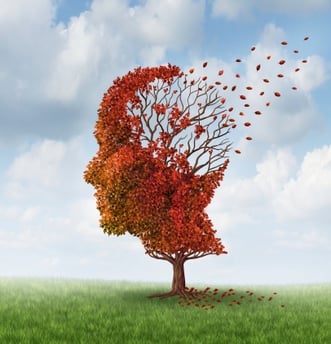
Scientists continue to learn about the brain's extraordinary capacity, including its ability to learn and regenerate from the cradle to the grave. Also known as neuroplasticity, increased understanding of this phenomenon offers new hope for the reversal of age-related declines in brain function. Let's take a closer look at the topic of neuroplasticity, along with how you can help your aging loved one enjoy enhanced brain health.
About Neuroplasticity
Scientists originally believed that brain development halted in the early years of life. However, recent research indicates that the aging brain continues to be "plastic" -- meaning it can form new connections throughout life. This suggests that adult brain cells that have been lost to aging or damage are not necessarily permanently gone, but may be regenerated through the formation of new neural connections.
How does neuroplasticity work exactly? While scientists are still amassing research, they believe that the brain is constantly reorganizing itself in order to function better. This explains why patients who suffer a brain disease or traumatic brain injury can sometimes recover and regain previously lost abilities.
How to Optimize Neuroplasticity
The quest to acquire new skills helps the brain remain active and pliant. While the aging brain does suffer inevitable age-related deterioration, some changes may also be attributed to atrophy and lack of use. The solution? Taking advantage of plenty of opportunities for "lifelong learning" to keep the brain sharp as we age.
In other words, just as exercising the body keeps it fit and healthy, so does exercising the brain. A variety of brain-boosting activities can help your aging loved one harness the amazing power of neuroplasticity.
Break Out the Brain Games
A recent Scientific American article explored the rise of "brain games," and whether they live up to their promise.
While research is still underway with multiple studies currently attempting to understand human brain training, evidence points to their long-lasting benefits for improving cognitive abilities. One study published in the Journal of the American Geriatrics Society concluded that healthy older adults who "trained their brains" improved auditory processing speed by a whopping 58 percent! These same participants also experienced gains in overall memory and cognition, as well as improvements in quality of life, such as better attention spans during conversation and even enhanced self-confidence.
In addition to formal "brain training" exercises, even simple daily tasks can make an impact. These include everything from intellectual pursuits to increased social interaction. Of course, other factors also come into play when it comes to keeping the brain young, including eating right, exercising, and practicing mindfulness.
Research also shows that rehabilitation therapy, meanwhile, can be a valuable tool in "jump-starting" neuroplasticity in central nervous systems that are damaged or suffering from inactivity.

One of many ways to sharpen those brain cells.
Ultimately the expression, "you can't teach an old dog new tricks," is being scientifically overturned by the latest news on neuroplasticity. And the more information we learn about this amazing breakthrough, the more we can expect to makes strides at improving everything from memory to problem-solving. To learn more about brain fitness and other subjects affecting seniors, visit mmLearn's extensive collection of caregiver videos.
